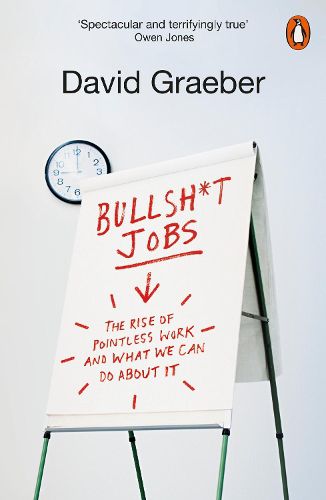Readings Newsletter
Become a Readings Member to make your shopping experience even easier.
Sign in or sign up for free!
You’re not far away from qualifying for FREE standard shipping within Australia
You’ve qualified for FREE standard shipping within Australia
The cart is loading…






Huge swathes of people spend their days performing tasks they secretly believe are not really necessary. This book shows why, and what we can do about it
Back in 1930, the economist John Maynard Keynes prophesied that by the century’s end, technology would see us all working fifteen-hour weeks. But instead, something curious happened. Today, average working hours have not decreased, but increased. And now, across the developed world, three-quarters of all jobs are in services or admin, jobs that don’t seem to add anything to society- bullshit jobs. In Bullshit Jobs, David Graeber explores how this phenomenon - one more associated with the 20th-century Soviet Union, but which capitalism was supposed to eliminate - has happened. In doing so, he looks at how we value work, and how, rather than being productive, work has become an end in itself; the way such work maintains the current broken system of finance capital; and, finally, how we can get out of it.
$9.00 standard shipping within Australia
FREE standard shipping within Australia for orders over $100.00
Express & International shipping calculated at checkout
Huge swathes of people spend their days performing tasks they secretly believe are not really necessary. This book shows why, and what we can do about it
Back in 1930, the economist John Maynard Keynes prophesied that by the century’s end, technology would see us all working fifteen-hour weeks. But instead, something curious happened. Today, average working hours have not decreased, but increased. And now, across the developed world, three-quarters of all jobs are in services or admin, jobs that don’t seem to add anything to society- bullshit jobs. In Bullshit Jobs, David Graeber explores how this phenomenon - one more associated with the 20th-century Soviet Union, but which capitalism was supposed to eliminate - has happened. In doing so, he looks at how we value work, and how, rather than being productive, work has become an end in itself; the way such work maintains the current broken system of finance capital; and, finally, how we can get out of it.